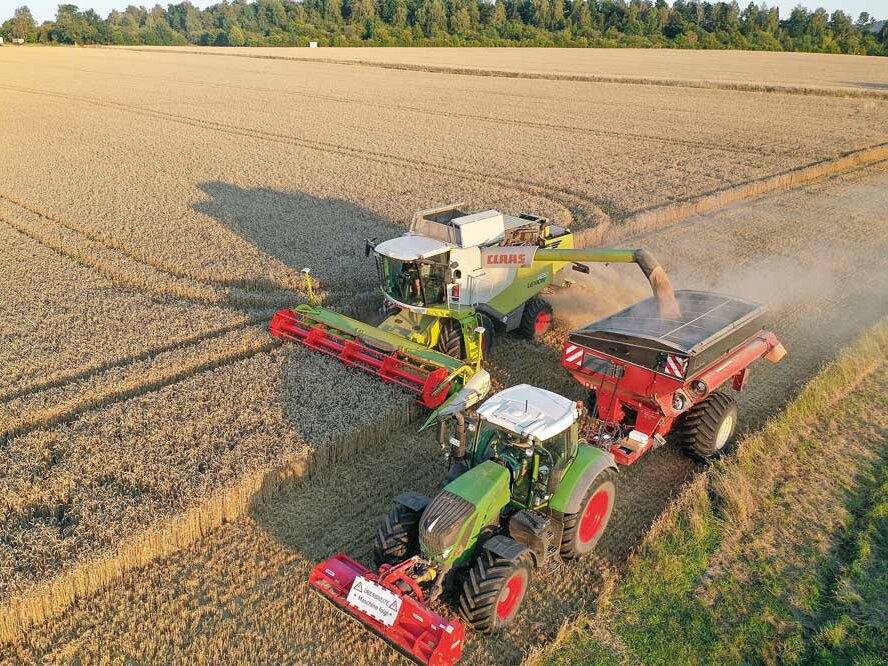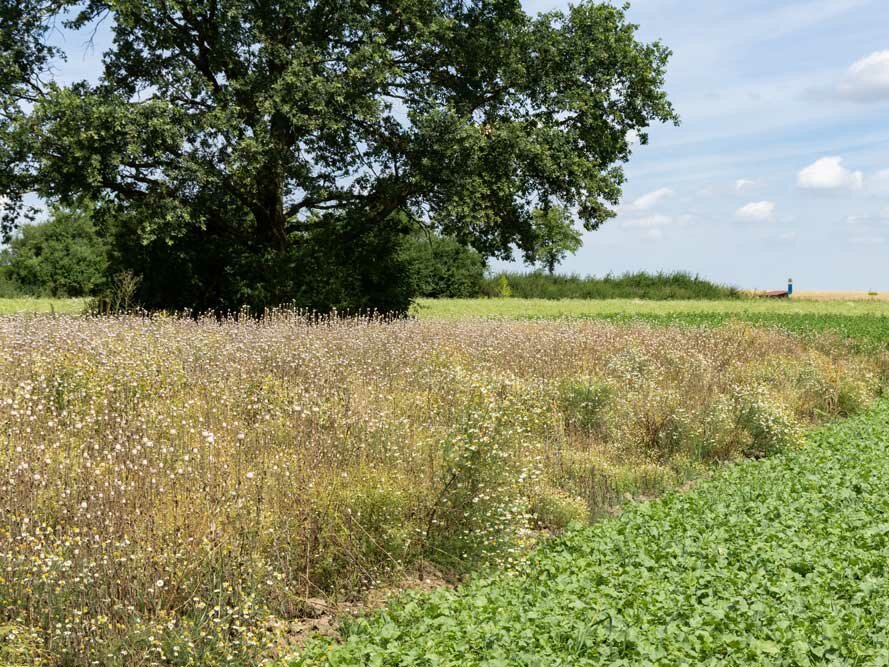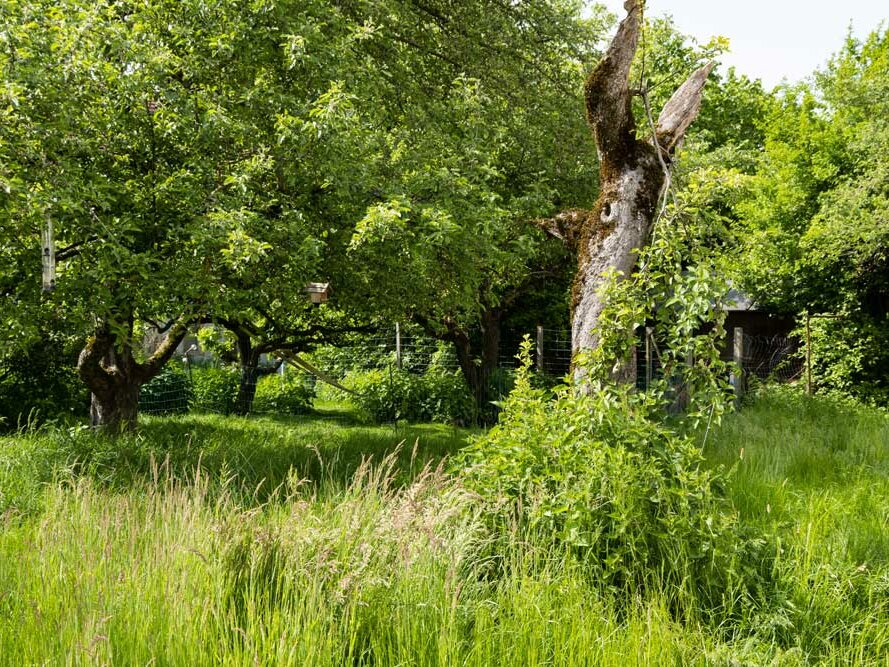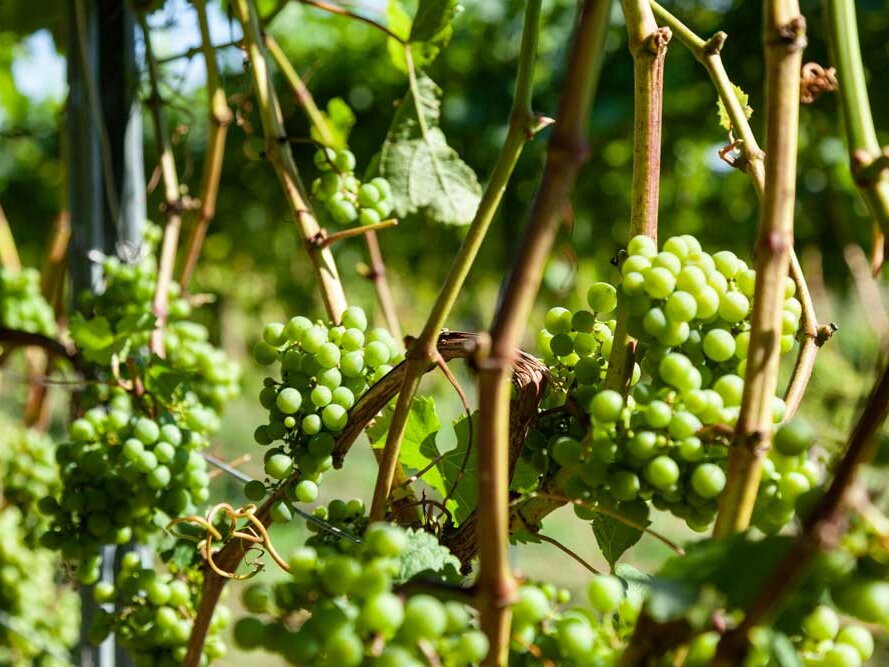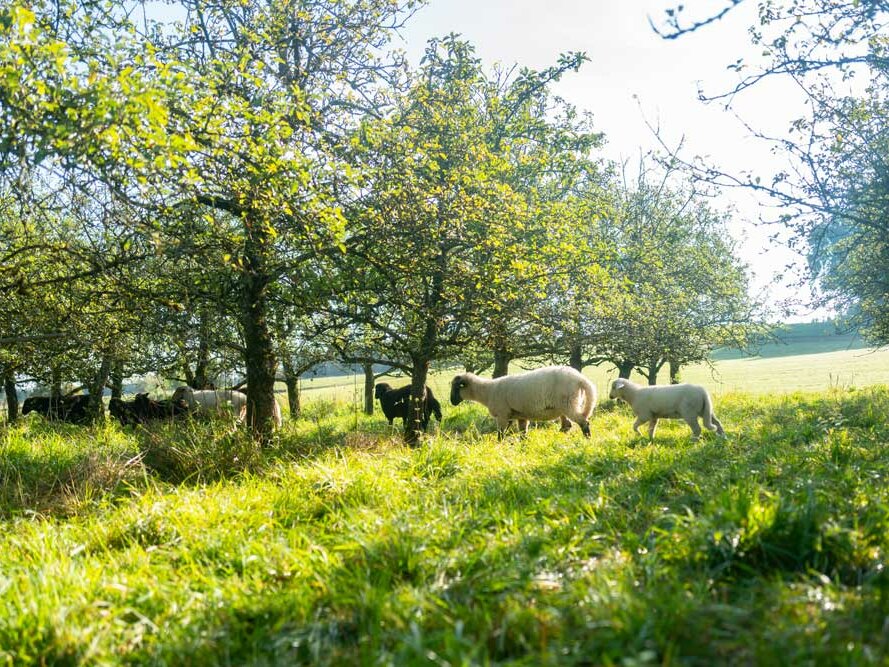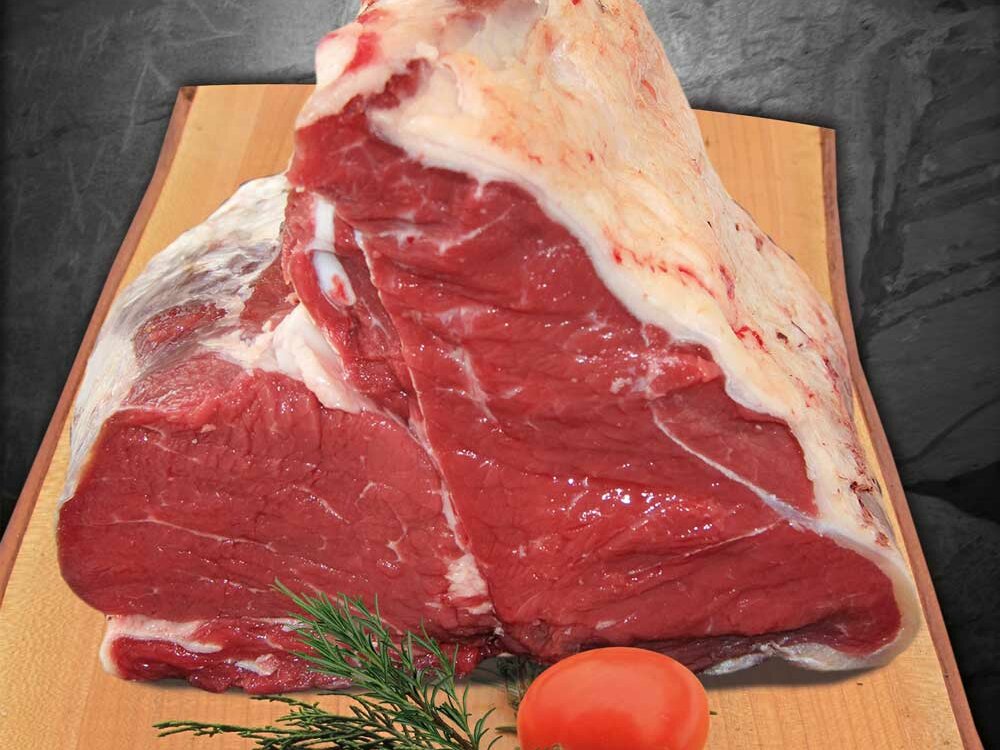Appeal for a (sustainably intensive) responsible agriculture
By Dr sc. agr. Herbert Ströbel, Professor emeritus of Agricultural Economics, Weihenstephan-Triesdorf University of Applied Sciences
In politics, in society and in agricultural research, organic farming is often seen as the ideal way to meet numerous challenges facing agriculture: to provide sufficient food for a growing world population on a limited amount of available agricultural land, and at the same time to minimise the negative effects of agricultural production on the climate and the environment, without significantly increasing the financial and social costs of food.
However, it is too easy to draw a simple opposition between “organic” and “conventional” agriculture.
Worldwide challenges for farming
In general, compared with natural vegetation or near-natural use of the same area, growing of crops results in significantly less biodiversity and much higher atmospheric greenhouse gas emissions, irrespective of which system of cultivation is applied.
The cultivation of crops suppresses about 70 - 90% of species and causes a net emission of greenhouse gases through ploughing, sowing, fertilising, pesticides and harvesting, since only about as much greenhouse gas is bound in the biomass during the growth of the crop as is subsequently released by the digestion of food and feed and by rotting in the field. Both the reduction in biodiversity and the increase in greenhouse gas emissions are caused by the production of food and feed, and should be considered as lost benefits, i.e. as opportunity costs. The level of these opportunity costs depends largely on the amount of land required for agricultural production. Opportunity costs are lower, the higher the yield per hectare and the lower the amount of land needed to achieve the required production goal. Land needed for production is no longer available for natural vegetation or near-natural use.
Comparisons of environmental impacts must therefore include opportunity costs and have to be made in terms of tons of yield rather than hectares of land. The objective is to produce the required quantity of agricultural goods at the lowest possible environmental cost and thus in an environmentally friendly manner. This is particularly true at a time when the expansion of farmland is threatening natural vegetation worldwide, and when the sequestration and avoidance of greenhouse gases is becoming increasingly important in the face of climate change.
Responsible and sustainable agriculture
Therefore, we need to view land use as a central factor and manage it consciously. Responsible land use is the way in which the best economic and social use of the resource of land can be made. In terms of yield, production costs and land requirements, organic farming performs significantly worse than conventional farming. However, if this potential is to be realised, the idea of freeing up land for the benefit of climate protection and biodiversity must be consistently supported by society and politicians. In the interests of global justice, the “import of land” must also be considered.
Climate change, soil degradation and the limiting factor of usable land make it imperative to conserve and possibly even expand ecologically valuable areas for climate and biodiversity and to promote the productive use of available arable land to feed the world's population. All technological possibilities must be employed to this end and the findings of organic farming should be explicitly used to achieve a greening of agriculture as a whole.
Addressing the entire agricultural sector
Conventional agriculture is not only the dominant form of land use, still producing well over 90 % of agricultural commodities, but it is also largely practised by highly skilled and responsible farmers, who are open and capable of responsibly implementing all those technologies which improve climate, environment, biodiversity, yields and profitability. It is the task of policy-makers to set the framework conditions according to eco-social criteria in such a way that all available technologies are used and further developed to create an innovative, environmentally friendly, sustainable and profitable agriculture.
Promotion of eco-friendly technologies
The research, development and use of technologies to improve environmental performance and increase yields in agriculture as a whole should be actively supported. This includes the promotion of “green” nitrogen fertilizers, the breeding of disease, pest and drought tolerant varieties by applying modern techniques. Furthermore, crop protection should be improved by developing more environmentally friendly active ingredients including biological systems, as well as robotics and bio-stimulants. The technologies of all forms of agriculture should not be seen as opposites, but rather as a spectrum from which the best can be selected.
Equal subsidies for organic and conventional agriculture
The evidence of lower biodiversity and higher greenhouse gas emissions of organic farming compared to conventional farming shows that external costs increase rather than decrease with the expansion of organic farming. The disproportionately high level of public support for organic farming is therefore not justifiable. At the same time, the political target of 30 % organic farming in Germany and 25 % in the EU is demystified, as it leads to the undesirable effects mentioned.
Without special subsidies the volume of organic farming would only be determined by those consumers prepared to pay higher prices for a purely subjective added value. The deliberate misleading of consumers in the interest of high sales volumes and the enforcement of high trade margins for organic products should be specifically counteracted.
Less food per acre leaves less land for nature
High yields are needed to preserve the world's forests and grasslands and thus limit climate change, species loss and freshwater shortages on our planet to tolerable levels. Nobel laureate Norman Borlaug and Christopher Dowswell summed up this simple insight at the end of the last century, recognising the value of high yields when they wrote: "Growing less food per acre means leaving less land for nature".
Crop protection based on environmental criteria
The approval of plant protection products should be strictly based on toxicity and impact on flora, fauna and food quality. Exceptions, such as the highly toxic copper compounds required for organic farming, should be avoided. Over time, increasingly stringent approval and application criteria would make it possible to reduce negative effects without significant yield losses.
An application cut of pesticides by half or even more does not make sense for several reasons. Rigorous scientific studies show that the negative effects of chemical pesticides on flora, fauna and food quality are much smaller than is generally assumed. In particular, they are too small to justify the higher production costs of organic farming and the associated lower yields, as well as the negative environmental impacts of additional land use and relocation of production abroad.
Targeted promotion of measures with positive environmental impacts
Improving the environmental performance of agriculture as a whole can rather be achieved by promoting measures with verifiable effects than by the current area-based support for organic farming. For example, activities rewarded with zone-specific eco-points would be applicable to all farms and thus allow for targeted improvements across the board following basic principles:
- Strictly focus support on effectiveness by preferably improving the environment without reducing yields.
- Make environmental measures economically attractive.
- Compensation of additional costs from public funds.
- Incorporate existing eco-regulations.
- Reducing premium skimming by landowners.
- Targeted support for specific farm types, for example in certain size classes or in disadvantaged areas.
De-bureaucratisation of the subsidy system
Farmers are burdened by excessive bureaucracy and often overly detailed, impractical and sometimes contradictory regulations. Too many incomprehensible forms, inadequate and sometimes unprofessional digitisation, and in some cases divided responsibilities between authorities complicate procedures and have a negative impact on farming. Also many hours of skilled personnel are tied up in unproductive or even counterproductive bureaucracy and result in financial, economic and social costs.
The following principles could be followed to reduce bureaucracy:
- Fewer detailed rules and more decisions in the hands of farmers.
- Reducing the number of support measures and simplifying documentation requirements to the minimum necessary.
- Harmonising the rules of different authorities and reducing the number of offices controlling regulations.
- Requiring public authorities to provide timely, written and legally binding information on specifications and supporting measures in response to specific written requests.
- Collecting innovative ideas for bureaucracy reduction centrally and encouraging all stakeholders, from science to ministries, offices and farmers, to make proposals for bureaucracy reduction.
Critical discourse in professional circles and society
German and EU agricultural policy decisions are currently strongly influenced by selected studies, such as the Thünen Report 65 and the Zukunftsstudie Landwirtschaft, which give a very favourable assessment of organic farming. This positive assessment is due to the fact that the environmental benefits of organic farming compared to conventional farming are considered on a per hectare basis. Environmental impacts per unit of volume and production costs play only a minor role. In addition, the opportunity costs of organic farming due to higher land requirements are largely ignored. Recommendations are therefore not always based on a sufficiently broad consideration of the relevant factors and impacts that are crucial for a responsible agriculture. It is, therefore, time to consider how to reopen the way for broad, critical and open-minded discussion and reporting in the media on the politically and emotionally charged issues of organic farming and the greening of agriculture. The current one-sidedness not only prevents real discourse and consequently rational decisions but is also detrimental to environmental sustainability, global justice and ultimately social and economic prosperity.
High yields are needed to preserve the world's forests and grasslands and thus limit climate change, species loss and freshwater shortages on our planet to tolerable levels. Nobel laureate Norman Borlaug and Christopher Dowswell summed up this simple insight at the end of the last century, recognising the value of high yields when they wrote: "Growing less food per acre means leaving less land for nature".
The merits of organic farming
With today's knowledge there are also high demands on the yield-enhancing inputs themselves in terms of their impact on the environment and this aspect must be at the centre of the debate, alongside yield increase and efficiency in the use of these inputs. In any case, the use of all yield-increasing and land-saving fertilisers and pesticides, as well as modern plant breeding combined with a strong commitment to minimising harmful effects on the environment, is a better solution than the rejection of the highly effective and efficient synthetic substances, as propagated by organic farming.
Nevertheless, it is to the credit of organic farming that it has raised awareness of the environmental problems of conventional agriculture. This was particularly the case in the late 1980s, when income subsidies through high produce prices made it highly attractive for agriculture to use large amounts of chemical inputs, leading to excessive use of pesticides, over-fertilisation and one-sided crop rotations. Organic practices have contributed to improved technologies in conventional agriculture, particularly in fertilisation, soil preparation and crop protection. As a result, it has brought about timely corrections and thus limited environmental damage.
This shows that organic farming is valuable in terms of a technology-open optimisation of agriculture as a whole, and that the knowledge gained from this form of land use must be part of this rational approach to sustainable, intensive agriculture. The responsible ecological reorganisation of our agriculture must be carried out in such a way that its productivity and efficiency are maintained and, as far as possible, increased.
Further information
The complete study and analysis can be found at:
Is more organic farming responsible?
- Due to its high land requirements organic farming causes significantly higher production costs, more greenhouse gas emissions and higher biodiversity losses than conventional agriculture.
- Technologies need to be assessed comprehensively; simple per-hectare comparisons are inadequate and incorrect; production and opportunity costs need to be taken into account.
- For the development of agriculture, the technologies of all forms of farming should not be seen as opposites, but as a spectrum from which the best can be selected.
- Media should be more critical with statements and research results on farming systems before publishing them, and should also face up to the highly complex interrelationships.
- High and area based subsidies for organic farming combined with high food prices are inefficient and economically and socially highly questionable instruments to support sustainable agriculture.
- Reduced consumption of food of animal origin cannot compensate for the higher land requirements of organic farming and only has a significant positive effect on climate and biodiversity in combination with high-yield agriculture.
- A more intelligent support policy must provide lucrative incentives for goal-oriented behaviour and not be based on ecological improvements at the expense of farmers' incomes.
These factors indicate that more organic farming is not an appropriate strategy. A responsible and technologically open development of conventional agriculture together with a moderate reduction of meat consumption is the more efficient future model for a sustainable and responsible agriculture.



